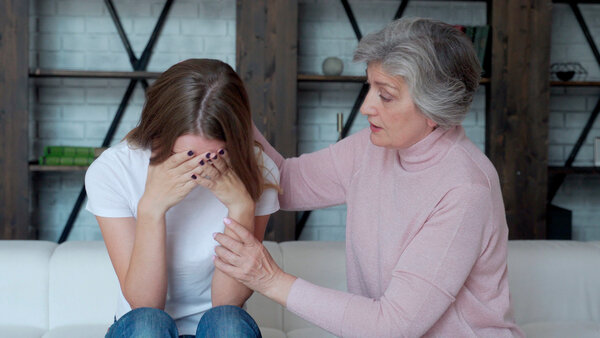Understanding the challenges and complex dynamics when adult daughters choose to become estranged from their mothers can mean untangling a complicated web of emotions and circumstances. Estrangement is a difficult choice that is not made lightly.
The rupture of what is essentially thought of as one’s most central relationship is a painful experience for both daughter and mother. It’s often accompanied by criticism and judgment — not only from family members but from friends, colleagues, and acquaintances as well. For the estranged mother and daughter, it often remains a dreaded topic of conversation in social settings because others believe they have license to lecture or shame the daughter who has made such a choice. The mother, meanwhile, is left to grapple with shame, insecurity, and self-doubt. Oftentimes, outsiders will say — or at least think to themselves — “What did you do to your child?”
Estrangement does not discriminate. For adult women who choose estrangement from their mothers, the causes often stem from abuse, neglect, or trauma. Their choice to break all ties with their mothers results after failed attempts to repair or heal the relationship. Estrangement arises from a culmination of experiences that indicate to daughters that any attempts at continuing the relationship will be harmful to their mental — and possibly physical — health.
It’s not uncommon for mothers to retaliate by claiming their daughters are exaggerating their experiences. But it’s important to recognize that the level of trauma is interpreted by the person who experiences it. Trauma is stored in memories in different ways, which means one person’s recollection can look completely different than another’s.
Through an exploration of estrangement with adult daughters in a clinical setting, we find that they describe a variety of symptoms they’ve endured that signify how much energy they’ve expended in arriving at their decision.
Showing support to estranged daughters can help remove much of their anguish. Here are some tips:
1. For Partners
As the compassionate partner or spouse of a woman who has experienced a relationship rupture with her mother, recognize how painful the estrangement is for your loved one. When walking into any situation where discussions of family systems or dynamics come up, follow your partner’s cues and allow your partner to lead the conversation. Support her in her decision to disclose as much or as little as she needs to interact with others in ways that feel safe to her. Encourage her to develop other healthy relationships, befriending parental figures if appropriate.
2. For Siblings
A strained relationship between a parent and adult daughter can ripple out to siblings. Often, siblings may feel they’re caught in the middle. To keep healthy boundaries with both your estranged sibling and mother, don’t share what they share. While the urge to report back on what your mother is saying about your sibling — or vice versa — is strong, repeating what was said can be very hurtful. Your disclosures can keep the trauma cycle alive. Siblings and mothers may disclose a variety of emotions, all of which are valid. Acknowledge without attempting to minimize or negate their emotions. Statements such as “I can see how that hurt you,” or “I hear how painful this is for you,” can indicate that you’re listening with compassion without taking sides.
3. For Friends
Friends, colleagues, and extended family wanting to best support an adult daughter in their social sphere who is estranged from her mother, will respect her choice to be estranged. Remain compassionate and follow her lead if she wants to talk about her estrangement or not. Become aware of triggers in conversations that can bring up the shame or pain of her estrangement, such as asking about holidays, family events, Mother’s Day gatherings, or other occasions in which they have chosen to refrain from participating.
Assumptions concerning estrangement are widespread and can exacerbate the emotional charge of those involved. Whenever estrangement is pursued in response to family conflict, providing a compassionate, judgment-free space for those daughters estranged from their mothers is the best tool for helping them heal.
Author Bio
 Khara Croswaite Brindle is a licensed mental health therapist in private practice in Denver, Colorado. She holds various roles, including financial therapist, TEDx Speaker, burnout consultant, author, and professor. Her new book is Understanding Ruptured Mother-Daughter Relationships: Guiding the Adult Daughter’s Healing Journey through the Estrangement Energy Cycle (Rowman & Littlefield, July 1, 2023). Access therapeutic tools for adult children at estrangementenergycycle.com
Khara Croswaite Brindle is a licensed mental health therapist in private practice in Denver, Colorado. She holds various roles, including financial therapist, TEDx Speaker, burnout consultant, author, and professor. Her new book is Understanding Ruptured Mother-Daughter Relationships: Guiding the Adult Daughter’s Healing Journey through the Estrangement Energy Cycle (Rowman & Littlefield, July 1, 2023). Access therapeutic tools for adult children at estrangementenergycycle.com


































